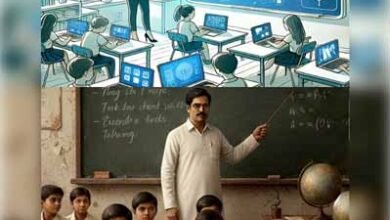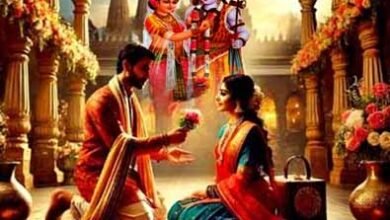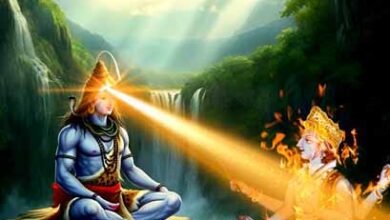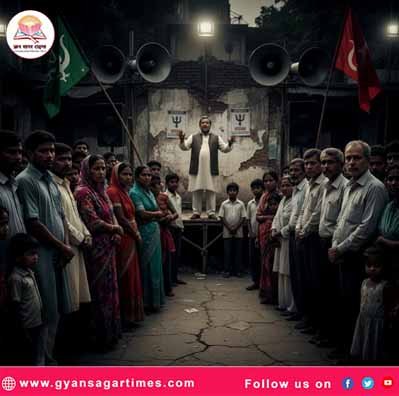
पाटने की बजाय खोदने का नाम है राजनीति..?
राजनीति, जिसे अक्सर ‘जनसेवा’ और ‘लोक कल्याण’ का माध्यम कहा जाता है. राजनीति का मूल उद्देश्य समाज में समरसता, न्याय और विकास को सुनिश्चित करना होता है. यह वह माध्यम है जिससे विभिन्न वर्गों, विचारों और हितों के बीच संतुलन स्थापित किया जाता है. लेकिन, आधुनिक राजनीति ने अपना मूल स्वरूप खो दिया है और अब यह केवल लोगों के बीच भेदभाव की खाई को पाटने की बजाय, उसे और गहरा खोदने का साधन बन गई है?
राजनीति की परिभाषा सामाजिक समन्वय, न्याय और विकास के इर्द-गिर्द घूमती है. इसका उद्देश्य विभिन्न वर्गों, जातियों, धर्मों और विचारधाराओं के बीच एक पुल का निर्माण करना है, ताकि सभी मिलकर एक समावेशी राष्ट्र का निर्माण कर सकें. यह ‘एकता में अनेकता’ के सिद्धांत पर आधारित होनी चाहिए. परन्तु, कई जगहों पर राजनीति अब ‘पोलराइजेशन’ (ध्रुवीकरण) और ‘वोट बैंक’ की संकीर्ण रणनीति का पर्याय बन गई है. राजनेता अब साझा हितों की बात करने के बजाय, विभाजनकारी पहचानों जैसे धर्म, जाति, भाषा और क्षेत्र को उभारकर अपनी शक्ति को मजबूत करते हैं. यह प्रवृत्ति समाज में दरारें पैदा करती है और खाई को और चौड़ा करती जाती है.
राजनीति में समाज को विभाजित करने के लिए कुछ स्पष्ट रणनीतियों का उपयोग किया जाता है. राजनीतिक दल किसी एक समुदाय या समूह की पहचान को अतिरंजित करके, उसे दूसरे समुदाय के ‘विरुद्ध’ खड़ा कर देते हैं. इस ‘हम बनाम वे’ की सोच को बढ़ावा दिया जाता है. जैसे- किसी विशेष समुदाय को ‘पीड़ित’ बताकर भावनात्मक जुड़ाव बनाना और फिर दूसरे समुदाय को ‘दोषी’ या ‘खतरा’ बताकर उसके खिलाफ लामबंदी करना. राजनीति लोगों को उनके साझा नागरिक होने की पहचान से दूर ले जाती है और उन्हें उनके संकीर्ण सामुदायिक पहचान तक सीमित कर देती है. इससे सामाजिक एकता कमजोर होती है. एक वर्ग के मन में दूसरे वर्ग के प्रति भय या असुरक्षा की भावना पैदा करना. यह राजनीतिक दल को उस वर्ग के ‘रक्षक’ के रूप में स्थापित करता है. वहीँ, दूसरी ओर बीते हुए विवादों या ऐतिहासिक घटनाओं को बार-बार उठाना, ताकि लोगों के पुराने घाव फिर से हरे हो जाएं और विभाजन की भावना जीवित रहे.
अगर राजनीति खाई खोदना बंद नहीं करती, तो एक राष्ट्र के रूप में हमारे अस्तित्व पर ही खतरा मंडराने लगता है. सामाजिक समरसता और राष्ट्रीय एकता के लिए खाई पाटने वाली राजनीति ही एकमात्र समाधान है, जिसका अर्थ होता है – ऐसी नीतियाँ बनाना जो किसी एक वर्ग को नहीं, बल्कि सभी वर्गों को लाभ पहुँचाना साथ ही विभिन्न विरोधी विचारधाराओं के बीच सार्थक संवाद को भी प्रोत्साहित करना. गरीबी, शिक्षा, स्वास्थ्य और रोज़गार जैसे उन मुद्दों पर ध्यान केंद्रित करना, जो हर नागरिक को प्रभावित करते हैं. लोकतंत्र का सार बहुमत के साथ-साथ अल्पमत के हितों की रक्षा करना भी है. खाई पाटने की राजनीति ही इस सार को जीवित रखती है.
राजनीति यदि गांधी, लोहिया, अंबेडकर या जयप्रकाश नारायण की परंपरा को अपनाए, तो वह खाई को पाटने का माध्यम बन सकती है. बताते चलें कि, दुनिया के महान राष्ट्रों का निर्माण टूटी हुई दीवारों पर नहीं, बल्कि मजबूत पुलों पर होता है. अगर राजनीति का लक्ष्य सचमुच राष्ट्र निर्माण है, तो उसे अपनी दिशा बदलनी होगी. उसे भेदभाव की खाई खोदने वाले फावड़े को छोड़कर, एकता का पुल बनाने वाले मिस्त्री की भूमिका अपनानी होगी.
” राजनीति खाई को पाटने की बजाय खोदने का नाम है” — यह कथन एक चेतावनी है, एक आत्ममंथन का आह्वान का. यदि राजनीति समाज को जोड़ने के बजाय तोड़ने लगे, तो वह लोकतंत्र के लिए खतरा बन जाती है. हमें ऐसी राजनीति की आवश्यकता है जो पुल बनाए, दीवारें नहीं; जो संवाद करे, दमन नहीं; जो समरसता लाए, विभाजन नहीं…
ई. हेमंत कुमार (पैनलिष्ट).
=========== =========== ==============
Is politics about digging deeper divides instead of bridging them..?
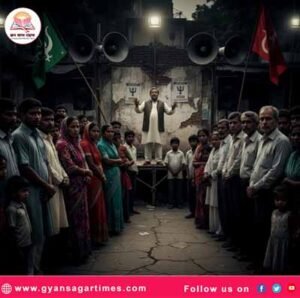
Politics, often described as a means of ‘public service’ and ‘public welfare,’ fundamentally aims to ensure harmony, justice, and development in society. It is the means by which balance is established between different classes, ideologies, and interests. However, modern politics has lost its original form and has now become a tool for deepening the divides between people, rather than bridging them?
The definition of politics revolves around social coordination, justice, and development. Its objective is to build a bridge between different classes, castes, religions, and ideologies, so that all can together build an inclusive nation. It should be based on the principle of ‘unity in diversity’. However, in many places, politics has now become synonymous with ‘polarization’ and the narrow strategy of ‘vote banks’. Politicians, instead of talking about shared interests, strengthen their power by highlighting divisive identities such as religion, caste, language, and region. This tendency creates cracks in society and widens the divide.
Several clear strategies are used in politics to divide society. Political parties exaggerate the identity of one community or group, pitting it ‘against’ another community. This ‘us versus them’ mentality is promoted. For example, creating an emotional connection by portraying a particular community as ‘victimized’ and then mobilizing against another community by portraying it as ‘guilty’ or a ‘threat’. Politics distances people from their shared identity as citizens and confines them to their narrow communal identities. This weakens social unity. Creating a sense of fear or insecurity in the minds of one class towards another class. This establishes the political party as the ‘protector’ of that class. On the other hand, repeatedly bringing up past disputes or historical events, so that people’s old wounds are reopened and the feeling of division remains alive. If politics doesn’t stop digging trenches, our very existence as a nation will be threatened. The only solution for social harmony and national unity is politics that bridges divides, which means formulating policies that benefit all sections of society, not just one, and encouraging meaningful dialogue between different and opposing ideologies. It means focusing on issues that affect every citizen, such as poverty, education, health, and employment. The essence of democracy is protecting the interests of the minority as well as the majority. Politics that bridges divides keeps this essence alive.
Politics can become a means of bridging divides if it adopts the traditions of Gandhi, Lohia, Ambedkar, or Jayaprakash Narayan. It is worth noting that the world’s great nations are built not on broken walls, but on strong bridges. If the goal of politics is truly nation-building, then it must change its direction. It must abandon the shovel that digs trenches of discrimination and adopt the role of a builder who constructs bridges of unity.
“Politics is the name given to digging trenches rather than bridging them” — this statement is a warning, a call for introspection. If politics begins to divide society instead of uniting it, it becomes a threat to democracy. We need politics that builds bridges, not walls; that engages in dialogue, not suppression; that brings harmony, not division…
E. Hemant Kumar (Panelist).


